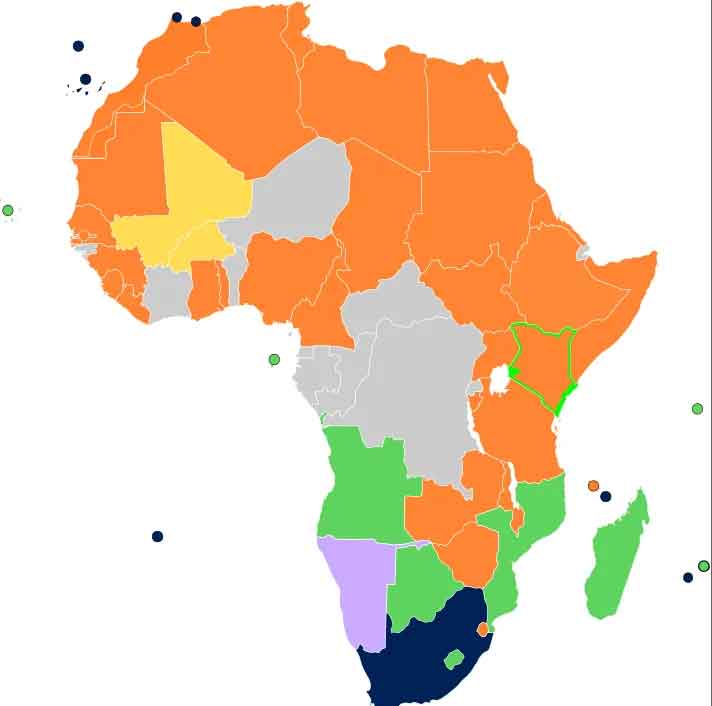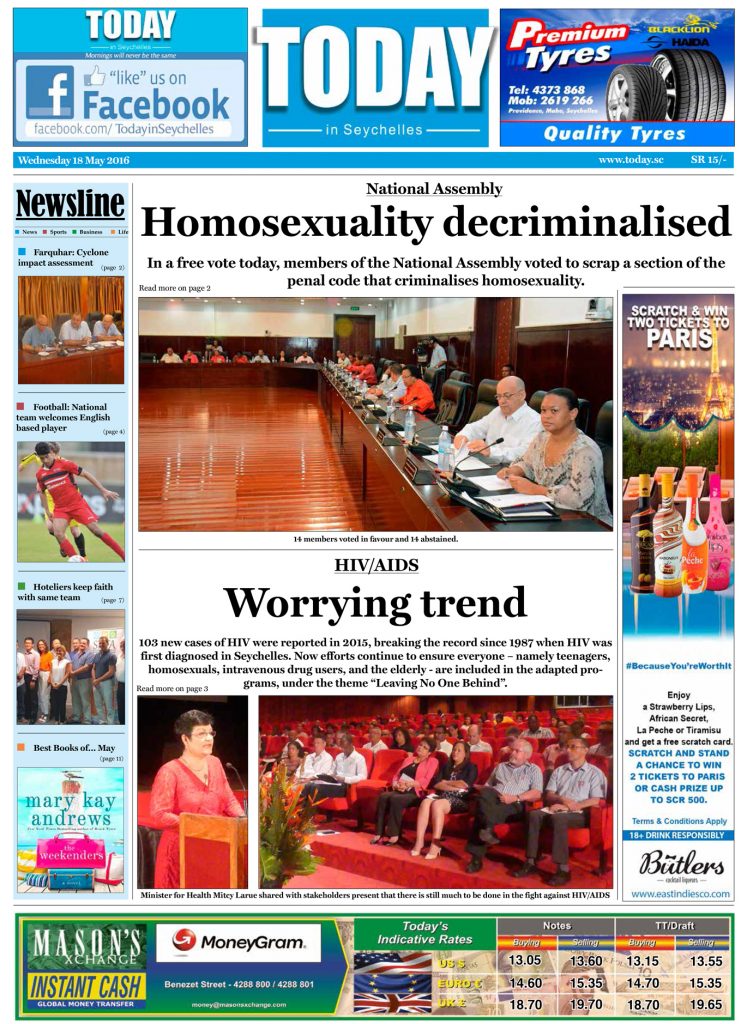2024 LGBTQ rights global update: Progress and reversals in Africa
Second in a series of updates about LGBTQ rights internationally, region by region
LGBTQ rights journalist Rob Salerno, an editor for Erasing 76 Crimes, surveys the status of LGBTQ rights and marriage equality in this series, which started with an overview of the Caribbean, Central America and South America. (Click here to subscribe to his LGBTQ Global newsletter.)

Namibia: The High Court ruled that colonial era sodomy laws were unconstitutional, striking all references to “sodomy” in several laws.
A bill that passed parliament 2023 seeking to overturn a Supreme Court ruling requiring the government to recognize foreign same-sex marriages for immigration purposes (and which would also criminalize LGBT expression) remaining unsigned by the President Geingob, who died in February, and his successor President Mbumba. A new President Netumbo Nandi-Ndaitwah takes office in March; she has previously campaigned in support of the law, but has not specifically said she would sign it. I’m also not certain if the bill persists after the expiration of the current parliament or if it would have to be re-passed by the current new parliament.
This is a trouble spot to watch out for, but there does appear to be a fairly strong Supreme Court as a bulwark against the worst legislative impulses.
South Africa: President Ramaphosa signed a Hate Crimes and Hate Speech law that had been passed by parliament in 2023. The law includes protections for LGBTI people and people living with HIV.
Zimbabwe: Parliament passed a bill to end the death penalty and it was signed into law on December 31. Everyone on death row will be re-sentenced.
That’s all the countries around the world. I’ll be back on Monday with a look back at the overall picture, global trends over 2024, and what I’m looking forward to in 2025.

Seychelles: Parliament passed a hate crime law that includes protections for LGBTI people and people living with HIV.
Comoros: A lesbian couple was arrested under the country’s anti-homosexuality law.
Lesotho: Parliament passed an updated Labour Act that bans employment discrimination against LGBT people and people living with HIV, and mandates equal pay for equal work for men and women.
Mauritius: The country reached an agreement with the UK to regain control of the British Indian Ocean Territory, although the agreement may be scuttled by the newly elected Mauritian government. If it passes, BIOT will likely cease to exist as a separate jurisdiction, and will no longer have legal same-sex marriages – unless BIOT persists as a legal entity for the proposed UK lease of Diego Garcia atoll.
Morocco: A proposed revision and liberalization of the penal code has still not advanced, as the religious opposition rallies against it. It’s not entirely clear how liberalized the new code would be. There hasn’t been much talk about decriminalizing gay sex, but there has been discussion about ending the criminalization of adultery and extra-marital sex. Part of the opposition to this comes from hoteliers, who run a good business charging unmarried couples extra for discretion when they want to share a room (which is otherwise illegal).

Burkina Faso, Mali, and Niger: These three former French colonies with Muslim majorities never had laws that criminalized gay sex, even as social attitudes were widely unaccepting. That looks like its going to end, as all three have been taken over by military coups in recent years driven in part by antipathy toward France and the West, and with sympathies toward Russia. The military regimes in Burkina Faso and Mali have announced new penal and family codes that will criminalize homosexuality and “associated practices,” but these codes have not yet been officially enacted or even published, so we don’t know what’s in them. Niger has not yet announced specific new anti-LGBT policies, but it’s likely only a matter of time. For present purposes, I’m not yet counting any of these as criminalizing states until the new laws are published and brought into force.
The three states have announced plans to form a “confederation.” It’s not clear yet what this confederation will be (A new nation? A trading bloc?) or when it will come into effect. The three countries have announced plans to withdraw from thee ECOWAS regional economic bloc, with ECOWAS recently responding by expelling them effective the end of July 2025.
Ghana: The Supreme Court upheld Ghana’s sodomy law, and then dismissed a challenge to an even more severe anti-LGBT law that had been passed by parliament in February because it hadn’t yet been signed by the president and thus couldn’t be challenged. The newly elected president hasn’t committed to signing the law, although he has said he supports it. Among a suite of draconian prohibitions on LGBT organization and expression, the law would criminalize lesbianism for the first time.

Cameroon: The president’s daughter came out as a lesbian in an Instagram post, sparking some hope that she might inspire change and decriminalization of homosexuality.
Gabon: The country passed a new constitution by referendum, which incidentally includes a ban on same-sex marriage.
Kenya: A court in Mombasa issued an interim order to anti-LGBT groups to stop inciting violence against LGBT people.
Uganda: The Anti-Homosexuality Act has continued to have dire repercussions for the country’s LGBT people. While the bill was upheld by the Constitutional Court, a fresh challenge was filed with the Supreme Court.
In November, a court awarded damages to 20 people who were detained on suspicion of homosexuality during the COVID era.




